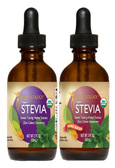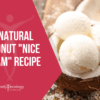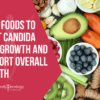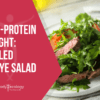The One Supplement that should be in Everyone’s Cooking Cupboard
The Addictive Quality of Sugar

Sugar and artificial sweetener consumption is rising, along with health-related complaints. All-Natural Stevia is a smart alternative, as it is nearly calorie free, prevents cavities and does not raise your blood sugar levels!
Did you know sugar consumption has risen 1,500 percent in the last 200 years?
The average American today consumes 150 pounds of sugar per year compared to the early 1800s, when sugar was a rarity and reserved for special occasions.
Without a doubt, sugar tastes good – so good in fact, we often joke about how addictive it is. The addictive quality of sugar is no joke, however. Studies done on rats show that sugar’s addictive properties and withdrawal symptoms are similar to drugs (though not as strong).
Processed Foods and Sugar
When you think about how much sugar is in processed foods today, it’s pretty scary. . We are literally becoming addicted to high carb foods and it shows in the epidemics of obesity and diabetes, among other health issues in America.
Your Blood Sugar Levels and Sugar
Refined carbohydrates contribute to serious health problems. As our blood sugar elevates, the cells can only accept so much sugar at once, and they are most accepting only when we are active and exercising. The excess sugar converts to fat.
Sprinkle in Some Stress
Add stress to the mix and you increase this problem exponentially. Stress causes a surge in cortisol, further increasing blood sugar levels. Insulin and cortisol in excess are called the “death hormones.” Besides causing your blood to become acidic and attractive to yeasts, fungus and cancer, you can expect problems like hormonal imbalances, early aging, adrenal fatigue and more.
Is eating that candy bar, for example, really worth creating this kind of suffering?
Not So Sweet Artificial Sweeteners
While it may have seemed smart to turn to artificial sweeteners, like aspartame (NutraSweet and Equal) and sucralose (Splenda), these alternatives are NOT safe choices.
The average American consumes over 50 pounds of artificial sweetener per year, often in snacks and soda pop.
Aspartame has been found to create side effects like memory loss, headaches and blurry vision.
Even if you were to risk the side effects for its calorie-free weight loss claims, evidence is now showing that aspartame can actually contribute to obesity.
One of its ingredients, the amino acid phenylalanine, actually blocks serotonin, which has a role in controlling cravings. The effect on your body may be that you now crave the high-carbohydrate, processed foods that sabotage your intention to eat healthier foods.
Sucralose has similar findings, such as enlargement of the liver and kidneys, shrinking of the thymus gland (plays a role in immunity and disease fighting), atrophy of the lymph, decreased red blood cell count, decreased fetal body weights and diarrhea, just to name a few.
Satisfying Your Sweet Tooth
Everywhere we turn these days, there is a great deal of agreement that sugar can harm your health, but there is very little information available on healthy choices to satisfy your sweet tooth. Providing solutions for healthy sweeteners has long been a goal of mine.
According to the ancient practice of Ayurvedic medicine, the sweet taste is one of six tastes…salty, bitter, sweet, pungent, sour and astringent.
Balance in all things, including how we balance the six tastes, is one of the key principles of the Body Ecology program.
A meal is balanced and very satisfying to us if each of these tastes is in that meal. We should never feel guilty for wanting sweet-tasting foods. That’s natural, but how we satisfy our natural desire for the sweet taste needs reevaluating.
Sweets the Body Ecology Way
Once you’ve add fermented foods and beverages to your diet, you will soon lose your cravings for excessive sweets. In fact, you will find yourself enjoying the natural sweetness in grains, fruits and sweet vegetables
But what can you use when you really want to satisfy your natural need for the sweet taste yet don’t want the damaging effects of sugar or artificial sweeteners?
Stevia – The Healthy Sweetener
An extraordinarily sweet herb, stevia is 200 – 300 times sweeter than sugar – and yet, it’s calorie free!
Stevia is a member of the chrysanthemum family (closely related to chamomile and tarragon) and totally safe. It has been used for centuries by the Indians of South America (where it grows) and in Japan for the past 30 years.

Body Ecology’s Stevia Liquid Concentrate
– which is all-natural, virtually calorie-free and safe for diabetics — satisfies your sweet tooth, prevents cavities and won’t raise your blood sugar levels!!How Stevia Tastes
If you buy the stevia as a green powder it has a slight licorice-like flavor that might take some getting used to. Stevia in the white powder form is an extract of the two components of stevia that give stevia its sweet taste. The white extract powder does not have the health benefits of the green stevia but it does have a much wider use since it is more delicious. Either form of stevia can help prevent cavities, will not feed yeast and does not raise blood sugar levels, making it safe for diabetics.
Stevia’s History and Safety
When looking for stevia in your health food store, you will find it in the supplement section because stevia has not been approved by the FDA as a sweetener. It has been approved as a dietary supplement, however.
The history behind this is that stevia was once a huge threat to Monsanto, when they still had the patent for NutraSweet. Now that the patent has run out, more natural alternative sweeteners are able to come on the market without the backlash that stevia encountered years ago.
Stevia has been tested in human and animal studies around the world with no negative side effects. Ironically, over 10,000 aspartame complaints have been filed with the FDA, yet it is still on the market.
How to Select Your Stevia
Stevia is available in many forms, including crushed green leaves and crude, greenish-brown syrup. These two forms are the most medicinal, but also have the strongest aftertaste.
We prefer the taste of white stevia powder or Body Ecology’s convenient Stevia liquid concentrate, made from the white powder.
The liquid form is great for those who are just starting to experiment with stevia because you can easily control the amount you add to beverages and foods. The white powder can be more difficult to work with, resulting in over sweetening your food.
Try stevia as an alternative to sugar. Use it to sweeten green or black tea or lemonade, for example. Experiment and you’ll soon have a nice little repertoire of recipes that will satisfy your sweet tooth without spiking your blood sugar.
On the Body Ecology diet, I recommend taking a step-by-step approach to healing. Replacing refined sugary, high carb foods with a high-quality stevia is a great first step that will start you on your way to healing your entire body.
I encourage you to read more about Body Ecology’s highly acclaimed Stevia Liquid Concentrate – including what sets it apart — and try some today!








